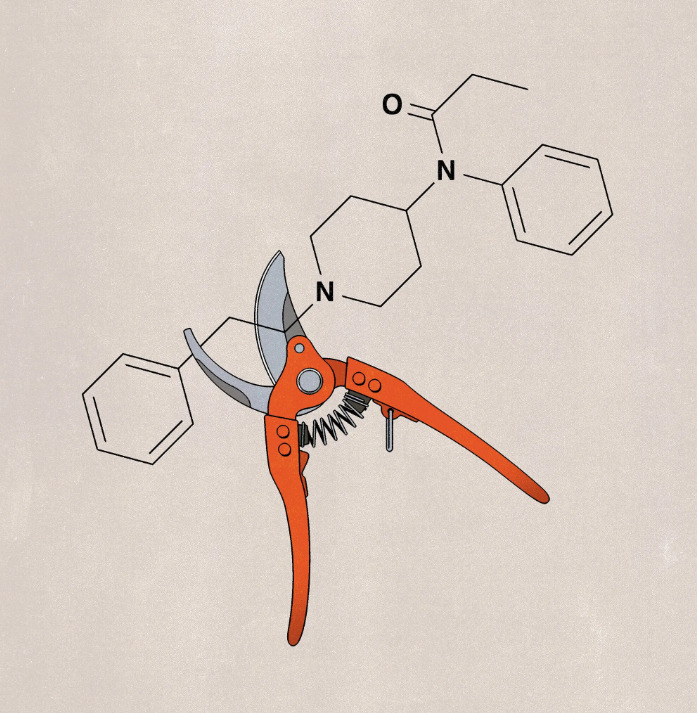
Michael Osterholm: COVID-19 cases could surge in fall
The growing COVID-19 pandemic could last up to two years, with a potential second wave in the fall, according to nationally renowned University of Minnesota…
Thought Leader: Michael Osterholm

This piece is by WWSG exclusive thought leader, Scott Gottlieb.
More than 80,000 Americans each year are dying from fentanyl as the opioid epidemic has morphed into a grimmer, more sinister threat. What began as a crisis fueled by the reckless prescribing of painkillers has now become a deadly illicit trade in counterfeit OxyContin or Vicodin pills containing fentanyl at wildly inconsistent dosages. Depending on the amount of fentanyl used, even a single pill can be lethal.
China remains the primary source of fentanyl entering the United States. Historically, this has been in the form of finished pills shipped to consumers through international mail and express consignment carriers.
But increasingly, chemicals used to manufacture fentanyl — referred to as precursor chemicals — are being sent to cartels in Mexico, where they are formulated into pills and trafficked across the border. As China cracks down on its illicit manufacturing sites, more of this illegal commerce is shifting to the precursor chemicals, and production routed through Mexico.
We must put an end to the illegal trade and production of this dangerously powerful opioid through sensible and overdue policies we can start putting in place today.
This starts with tightly regulating all the precursor chemicals, many of which escape existing restrictions, or evade oversight through constant remodification. As a recent Reuters investigation found, when part of illegal trade, the chemicals arrive as powders that are shipped by air, and the quantities needed to make huge numbers of fentanyl pills can fit in a jar or even a baggie.
Sent in these small volumes, the illicit shipments can be hard to spot at interdiction sites or to be recognized if customs agents inspect them. Criminals often ship the chemicals into the United States rather than directly to Mexico, since it is easier to hide them among the large volume of packages that America receives. The chemicals are smuggled into Mexico, where turning them into fentanyl at drug cartel labs is a simple exercise — then trafficked back into the United States.
Despite these challenges, we can do more to disrupt the illicit trade of these chemicals.
In recent years, countries have imposed new restrictions on the chemicals used to make fentanyl. But so far, the measures have mostly focused on how the chemicals are being used, rather than controlling their transit at every point. Under American pressure, China has tightened the screws on illicit fentanyl manufacturing within its borders, placing all forms of fentanyl on its controlled substances list in 2019, and subjecting these drugs to stricter oversight.
But the Chinese government has paid far less scrutiny to the booming trade in precursor chemicals. The United States needs to again demand that China zero in on these chemicals as part of its broader crackdown on fentanyl.
At the same time, the United States working with like-minded countries can institute more stringent global regulations based on international drug control agreements. Such regulations must also target new “pre-precursor” chemicals (more basic formulations of existing chemicals) that cartels use to evade scrutiny.
This can include requiring chemical manufacturers and shipping companies doing any business with the United States and its partners to more aggressively track these chemicals from the moment they arrive on the soil of a partner nation to the very end of their supply chains.
This would help better separate legitimate sales from illegitimate ones, and would allow easier identification and reporting of suspicious orders. We also need to make wider use of technologies that can help customs agents test chemicals in the field.
Giving regulatory agencies the power to crack down on manufacturing tools like equipment used to press fentanyl pills is the other crucial part of the equation. Much of the illegal trade is coming from labs with complex rotary presses that can produce tens of thousands of tablets an hour. In China and other countries, these machines are made by specialized companies — so it’s possible to target them with stricter controls.
Federal law requires firms that buy or sell pill presses in the United States to report these transactions to the Drug Enforcement Administration. As for foreign commerce outside the United States, greater international cooperation, the sale of this equipment can be more tightly regulated to ensure it goes only to legitimate outfits.
Such regulation includes more rigorous background checks of buyers’ credentials, advanced tracking of machines from the point of sale to their destination, regular audits of these rules and more stringent penalties for noncompliance. Any firm that wants to make legitimate sales in the United States and its partners would have to adhere to these conditions on all of their transactions, even those outside U.S. jurisdiction.
We also need to step up the interdiction of fentanyl pills that are still being mailed directly to consumers, most of which come from China. The potency of these pills is often over 90 percent, making them especially dangerous compared to the lower purity levels of drugs typically seized at land borders. Interdicting these packages is hard because of the sheer volume of shipments.
When I arrived at the F.D.A. in 2017, we tripled the number of inspectors at the international mail facilities, and then Congress gave us funding to add even more. Even so, less than 1 percent of the packages from abroad that are believed to conceal illegal drugs are being interdicted, according to data from 2019, and we need to substantially increase the number that can be inspected.
The illegal trade in the components used to make fentanyl is so blatant it is practically taunting us. We need to be just as unapologetic in cutting off these supplies at their source.
Michael Osterholm: COVID-19 cases could surge in fall
The growing COVID-19 pandemic could last up to two years, with a potential second wave in the fall, according to nationally renowned University of Minnesota…
Thought Leader: Michael Osterholm
Dr. Leana Wen: COVID summer wave, and watch out for extreme heat!
On Midday Healthwatch, our monthly conversations about public health with Dr. Leana Wen, we ask about the uptick in COVID-19 cases in Maryland and across the country. Should…
Thought Leader: Leana Wen
A Meeting of the Minds at Bellagio Spurs a Convening and a Movement
A Bellagio residency leads to a Bellagio convening and a project to alter the U.S. economic system in favor of better health Two Bellagio Center…
Thought Leader: Dave Chokshi

